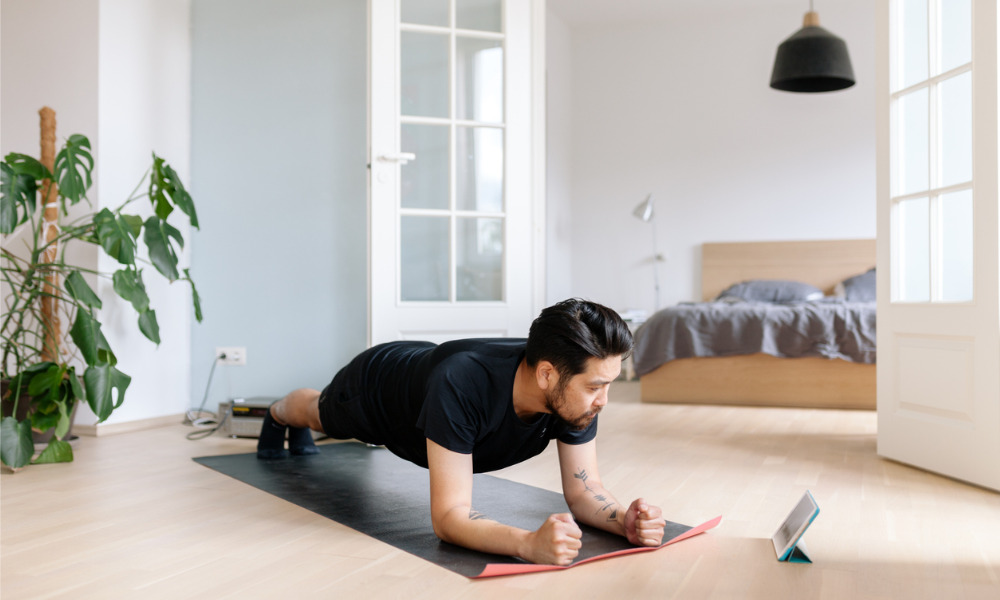
These simple tips will help your employees stay happy, healthy, and productive

The shift to remote work has seen two types of employee emerge – those who enjoy the flexibility and those who struggle with it.
In certain organisations, remote working was already the norm. As such, this shift has done little to derail productivity or morale. However, for those workers who’re used to interacting with colleagues in the office, it’s decidedly more difficult to embrace.
Craig Furness, NZ managing director at Gallagher Bassett, told HRD that people are taking to the new working environment in different ways.
“The key thing is to keep people really well informed about what you’re doing and why it’s important,” said Furness.
“The sharing of ideas in relation to taking a healthy approach to working has helped everyone. I don’t think that it’s possible to over-communicate during these COVID-19 times. COVID-19 has resulted in an unprecedented situation where all of our team are required to work from home for extended periods.”
Furness said the fact that everybody is having to adapt to a new way of working has made it very easy for the team to collectively consider the things that they can do to ensure that they’re taking a healthy approach.
Staying healthy can mean anything from regular exercise to good eating habits, and maintaining contact with the world around you, he said.
How do you expect employees to be productive when their spirits are low? It’s a case of Keep Calm and Carry On for many, with some employees suffering in silence.
As Forbes contributor Laurel Farrer puts it, "remote work has unprecedented opportunities to solve global crises… but it is also fuelling a new one."
Mental health concerns have skyrocketed thanks to the pandemic – with new, more worrying problems emerging every day. From refusing to ‘switch off’ (22% of employees), to loneliness (19%) and a lack of motivation (8%), HR leaders need to step up their game in order to safeguard their people from potentially life-altering mental health crises.
Keeping your spirits up is helped by having a good underlying structure and routine.
“Feel free to make adjustments to help you maintain your self-discipline, but don't cheat since that will disrupt your successful routine.”
Read more: Unhappy at work? Your health may suffer
For Furness, the main challenge - even for those used to working from home - is having the self-discipline to work for specific intervals and take short, planned breaks.
“This way, it's easier to set and keep boundaries for your work time. Doing this helps you avoid the ‘mental clutter’ that can become a significant stress factor for those working from home.”
It's also essential to have a designated place for working remotely. For those that don’t have an office, Furness suggested to carve out a "do not disturb" space in a quiet area and to help family members understand that this is your workspace.
“Having a ‘claimed space’ can make you feel more professional and dedicated to the work that provides your income, not to mention being a source of personal satisfaction,” said Furness.
How important is it to have a proper break during the day? Well, nearly 90% of employees claim that taking a lunch breaks helps them feel refreshed and ready to get back to work, according to a Tork survey.
When working from home, it’s important to adhere to your normal working schedule – and not slip into a home-life routine.
“Yes, you need breaks, but switching from your working mindset can signal a transition to your home life. This should happen only a few times during your workday,” said Furness.
“It's fine to use your lunch hour for personal matters (as you would in any office), but don't let these tasks take over your time. Return to your work on schedule.”
Read more: How to support mental health in COVID-19
Sometimes, people who start working remotely cheat a bit by sleeping late or eating at their desks. These temptations seem simple enough, but they can grow into serious distractions.
Depending on your health and metabolism, Furness said you might need a mid-morning or afternoon snack to keep your blood sugar on an even keel. However, it's not a good idea to make frequent trips to the kitchen while working.
“You should plan healthy, balanced meals to eat away from your workspace. If you have family around, this is an excellent time to enjoy each other's company. If you're alone in the house, use mealtime as a chance for reflection or non-work tasks.”
One advantage of working from home is that work breaks can double as exercise opportunities. Furness said this is a time to use any exercise equipment you might have, do yoga and other floor exercises, or walk outside - with the dog if you have one.
The more you keep working at home, the harder it gets to divert your attention to other things that matter, added Furness. Let's not forget all the one-on-one communication opportunities we have virtually.
“When was the last time you commented in detail about someone's Facebook post? What about those friends and relatives you've been meaning to call? If you want your spouse or kids to leave you alone while you work, you should give them special attention during lunch or at the end of your workday.”